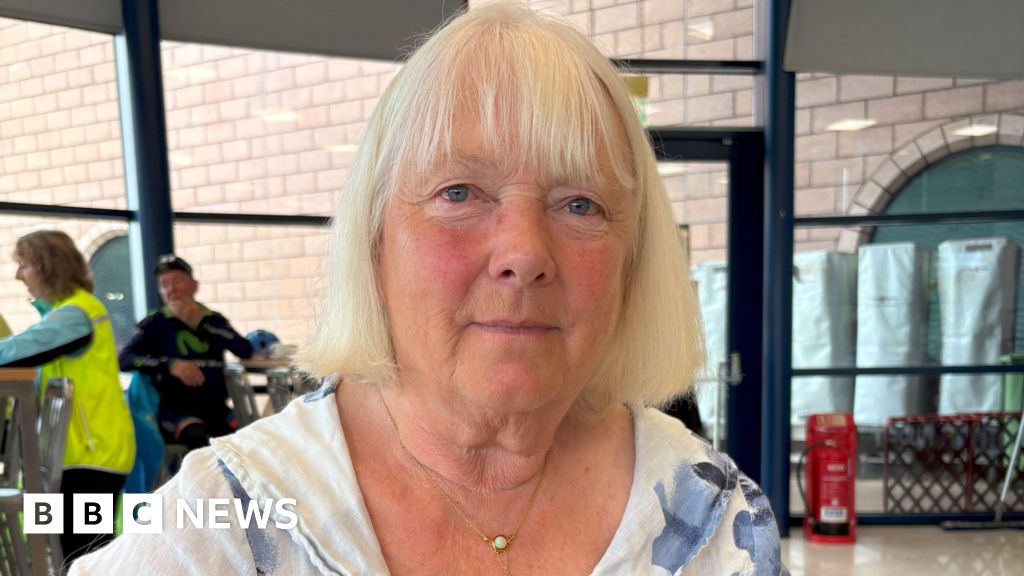Ian Hamilton and Daniel BennettBBC Scotland News
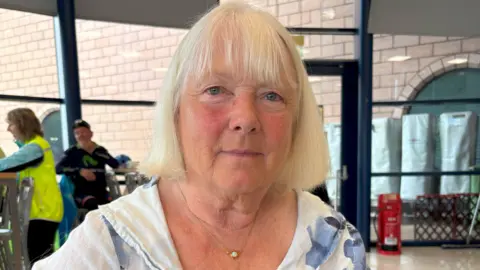 BBC
BBC
Judith Marshall, a wheelchair user, is now confident in the swimming pool
At Scotstoun pool in Glasgow, what is being described as a “mini submarine” is making swimmers lives, and health, better.
Judith Marshall, a wheelchair user, is one of the users of the new “PoolPod”.
Developed for the London 2012 Olympics, it is a platform lift that lowers people smoothly into the water and helps those with a disability, impaired vision or restricted mobility the chance to take part.
Judith says before it was installed, she was hesitant about swimming.
“Now, because I’m able to get into the pool, I can relax, it’s a fantastic feeling floating in the water,” she says.
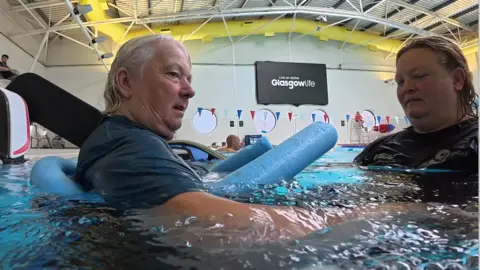
Judith says it feels like a miracle to move her legs in the water
With the push of a button, she’s able to lower herself into the pool where an instructor meets her to swim lengths.
“When you’re in a wheelchair, your hips don’t move at all. My legs don’t move. Because I’m in the pool, I can actually try to kick my legs. From there I find my stomach and bladder are all working better because I’m moving them,” she says.
“I hang onto the end, my feet are down on the ground, and I can straighten my legs. It’s not for long, but that is, from my point of view, a miracle,” she adds.
As someone who’s played badminton and tennis all her life, this is a way back to activity, not just exercise.
The PoolPod is part of a bigger picture across Glasgow. There are almost 30 sports facilities run by Glasgow Life, which aims to make physical activity more accessible in the lead up to, and after, next summer’s Commonwealth Games.
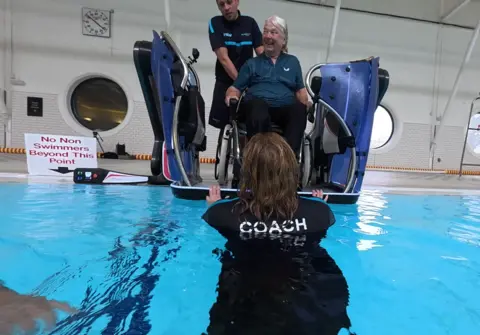
The PoolPod has opened up the sport of swimming to people with disabilities
“This is an evolution of that legacy framework we had in 2014,” explains Kirsty Garrett, Glasgow Life’s Sports and Wellbeing strategic manager.
She believes that there has been real growth in participation in the last decade.
“Going back to 2014 we had three community sport hubs, which had 2,000 members, and 20-odd clubs. Now we’re looking at 18 hubs, that have over 20,000 members, and over 100 organisations.”
Although there is improvement, in Kirsty’s view there are still areas for development.
She says: “We’re really investing in our staff to ensure they have the training, knowledge, and expertise so they feel comfortable engaging with people that have disabilities.”
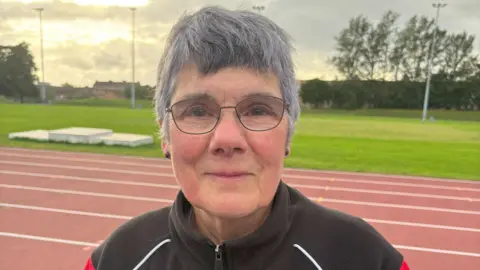
Caroline Johnston from Red Star AC wants sport to be accessible and affordable for people with disabilities
Getting people involved in parasport has to start as early as possible, say those who coach in disability sport.
Caroline Johnston is secretary of a disability athletics club, Red Star AC.
She says: “If the schools are no longer in a position that they can provide sport for athletes with disabilities, either in school or in specialist schools, how are they going to know they can join an athletics club?”
Although Caroline maintains sport can be, and is, accessible and affordable for people with disabilities.
“With the number of clubs opening their doors to athletes with disabilities, yes, it is affordable, but they do also need the support of the local authorities,” she says.
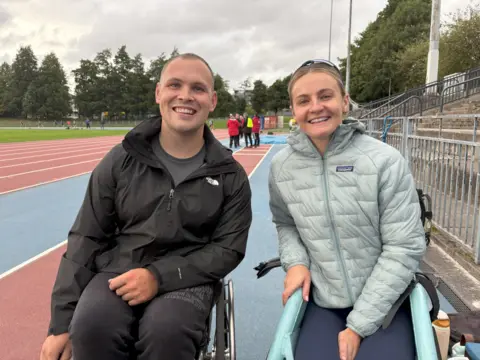
Wheelchair racers Ben Rowlings and Melanie Wood would like grassroots participation to improve
For athletes working towards next summer’s Commonwealth Games, visibility of parasports both at the Games and all the way down to casual participation is vital.
“Success breeds success. People with disabilities are looking at it and they’re thinking ‘can I do that too?’ and I think that’s where a lot of our successes come from,” says wheelchair racer Melanie Woods.
Ben Rowlings, also a wheelchair racer, says more needs to be done to harness the existing “pockets of really strong participation at grassroots” to get them to elite competition.
“I think the talent’s there,” he says. “Scotland’s a sporting country, there’s always going to be people with a disability that want to participate in sport and within that there’s going to be people that excel.
“It’s just being able to find it and channel it in the right way.”
Glasgow has been here before. In 2014, the city talked a lot about legacy.
Eleven years on, with another Games now confirmed, there’s a new push and new language about inclusion.
The next test is plain – can more people, with all kinds of needs, get through the door, feel welcome, and keep coming back?
Judith’s story shows what a single piece of kit can do. The challenge now is whether Glasgow can scale that access across sport as a whole.
